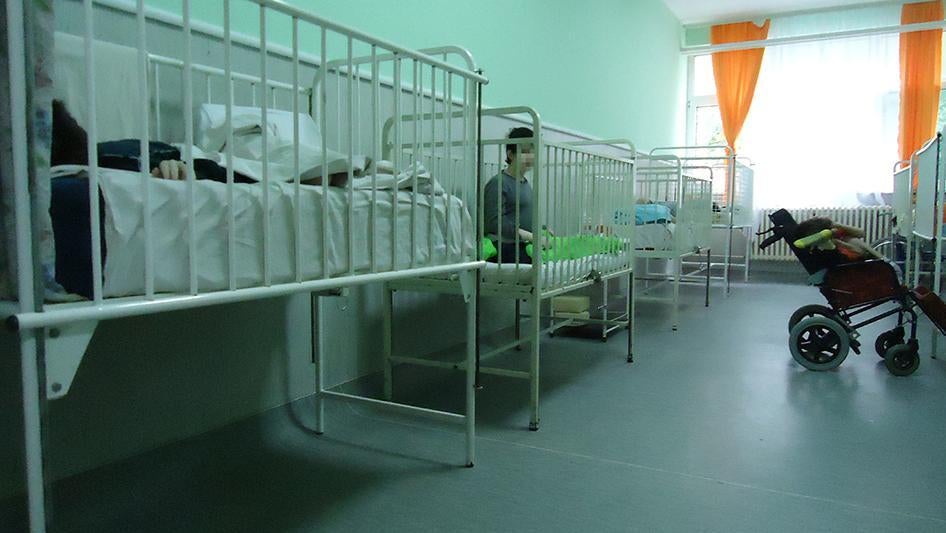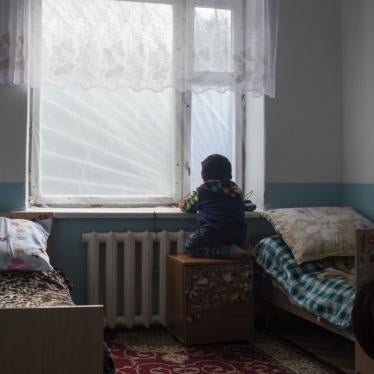A week ago, I went back to Sarajevo, my hometown in Bosnia and Herzegovina. My 6-year-old cousin asked me where I had been. I told her I was in Serbia to visit orphanages and institutions where children with disabilities live. “What is a disability?” she asked me. As I began to explain, her father politely intervened: “Please don’t talk about disability with her. She’s too young and sensitive. You’ll make her sad.”
I can sympathize with that. People often use the word “disability” alongside words like “tragedy,” “suffering,” or “victim.” So I can understand why many parents worry about upsetting their children. But the fallout from this kind of attitude is huge – and often irreparable.
Over the last couple of years, I’ve met hundreds of children and adults in the Western Balkans who have been locked up and hidden away in institutions for the simple fact that they have a disability.
Behind the walls of institutions, people with disabilities are not only segregated and confined – sometimes for decades – but they often also experience abuses like beatings, forced medical treatment, serious intrusions of privacy, and limited freedom of movement. Children are at high risk of serious abuse, and isolation and neglect can severely impede their physical, emotional, and intellectual growth as well. Instead of enjoying a family home, attending school, or playing outside like my 6-year-old cousin does every day, they spend their childhoods hidden away.
It’s high time to stop locking up people with disabilities. Governments have an important, central role to play in ending this practice. But everyone can help challenge the pervasive stigma against people with disabilities. Today, on the occasion of the International Day of Persons with Disabilities, is an appropriate time to consciously do just that.
When I asked my uncle why he is uncomfortable talking about disability with his daughter, he said he just didn’t know how to talk about it. First off, it’s important to recognize people with disabilities as just that: people. Sadly, they are often considered less than human, less worthy. It’s a bit obvious, but constantly being referred to as “the disabled” or “sick” isn’t very empowering. Disability is not a tragedy, but just one element of an individual’s identity and what makes someone unique. Secondly, we shouldn’t talk about disability in negative terms. So instead of saying, “That person needs a wheelchair because their legs don’t work,” try saying, “That person uses a wheelchair to move around, just like I use my legs to move around.”
Finally, as I have learned from my own experience, the easiest way to overcome fear and ignorance about disability is to get to know people with disabilities. Through my work at Human Rights Watch, I’ve met so many insightful, funny, caring, real people who happen to have disabilities. Some are colleagues and fellow advocates, others are people who have experienced abuses that we’ve documented.
Ultimately, people with and without disabilities need to routinely, casually, and naturally interact. That means we should all live in shared neighborhoods, go to the same schools, and work alongside each other. Otherwise, people with disabilities will continue to live in the shadows.










